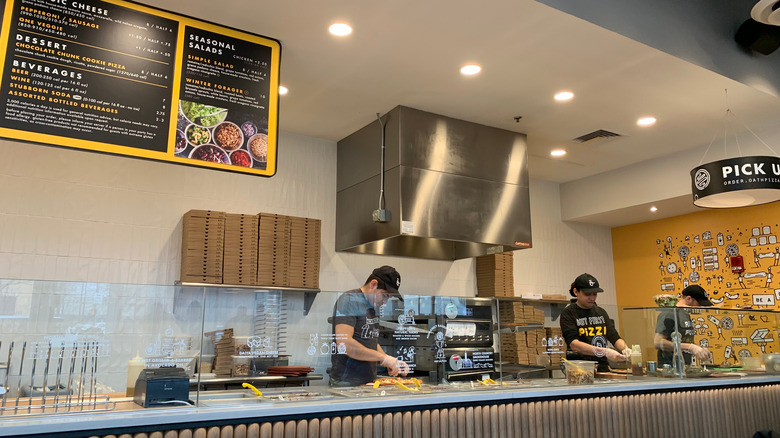How Sustainability Can Lower Costs For Fast Food Restaurants
Amid a summer marked by extreme heat waves, droughts, and other natural disasters tied to climate change, increasing numbers of individuals and businesses are looking for ways to decrease their ecological footprint (via NOAA). Across the restaurant industry, sustainability has become a major focus as more customers seek out sustainable dining options (via National Restaurant Association).
While sustainable restaurant practices like sourcing ingredients locally, investing in eco-friendly takeout packaging, and reducing food waste have a reputation for being more expensive than less eco-friendly options, a new QSR Magazine report argues that embracing sustainability could be a long-term pathway for reducing restaurant overhead costs while simultaneously benefiting from high-quality, locally-sourced ingredients.
The potential cost-saving and supply chain benefits of locally sourced ingredients are numerous. According to George Frangos, owner of Farm Burger restaurant in Decatur, Georgia, sourcing meat and other ingredients from local farmers and ranchers helped the restaurant avoid some of the major supply chain disruptions that plagued many restaurants in the early days of the COVID-19 pandemic. "We didn't have those issues because we work directly with farmers," Frangos said. "Our prices held tight, and we didn't have any problem with supply."
Increasing numbers of customers prioritize sustainable dining
Purchasing locally also enables Farm Burger to have greater control over the ingredients they're sourcing while supporting the local economy and appealing to an ever-growing sustainably-focused customer base (via QSR).
According to the National Restaurant Association's 2022 State of the Restaurant Industry report, 38% of adults polled said that they would be more likely to choose a restaurant that uses locally sourced ingredients over other options. Meanwhile, 30% of adults said they'd prioritize eating at a restaurant that uses ingredients that are raised organically or in an environmentally friendly way.
Poll respondents also indicated a preference for to-go packaging made with sustainable materials; a whopping 70% of Millennials said that they'd be willing to pay an additional fee to restaurants to cover the extra cost of the upgraded packaging. Embracing a more thoughtful, local-minded sourcing approach can also benefit a restaurant's bottom line by reducing transportation costs and eliminating waste.
Reducing ingredient transit time cuts costs while reducing food waste
According to QSR, the New England-based pizza chain Oath Pizza — which now sources 95% of its ingredients domestically, up from 75–80% prior to the pandemic — has saved money by reducing the shipping distance of products and eliminating trade tariffs imposed on imported goods.
The decreased transit time of locally sourced ingredients also extends the shelf life of ingredients, reducing the potential for food waste. "We're really mindful about the impact on the planet when we're making our decisions on what we bring in," said Pam McMorrow, Oath's director of supply chain and product innovation.
Although the restaurant industry at large still has a long way to go when it comes to sustainability, as increasing numbers of eco-conscious consumers give their business to sustainable eateries, more restaurants are likely to embrace sustainable practices — potentially reducing their bottom line while expanding their customer base.
Customers "want to know what a business stands for and what it's doing to minimize the environmental impact," said Laura Abshire, National Restaurant Association's director of Sustainability Policy. "They want to support businesses that align with their values."


